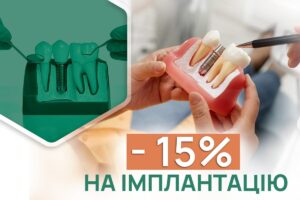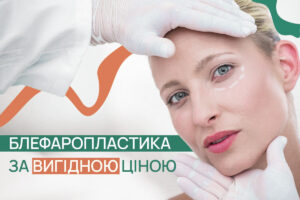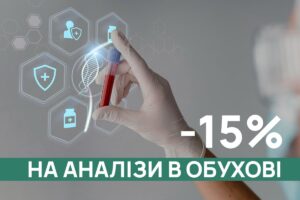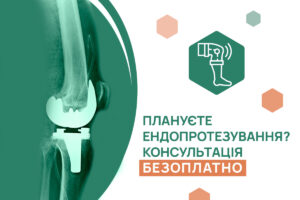
The draft law “On the Use of Assisted Reproductive Technologies” (No. 13638) could radically change the provision of medical services in the field of reproductive technologies and lead to Ukraine losing its status as the “reproductive hub of Europe.” It requires significant revision with the involvement of the professional expert community, according to experts surveyed by Interfax-Ukraine.
“According to various estimates, up to 40-60% of patients in large reproductive medicine clinics are foreigners (especially from the EU, the UK, the US, Canada, Israel, and China). If the law does not provide for transparent mechanisms for foreign patients, such as official medical visas or agreements between countries, Ukraine may lose its status as the “reproductive hub of Europe,” said Dmytro Biletsky, head of the assisted reproductive technology department at the Adonis Medical Gynecological Center (MGK) Adonis Medical Gynecological Center (MGK).
According to him, Ukraine is currently among the top 10 global destinations for reproductive technologies, thanks in particular to “affordable prices: an IVF cycle in Ukraine costs three to five times less than in most EU countries or the US,” the high level of specialists and technologies, the certification of many clinics according to international standards, and the fact that “Ukrainian legislation allows virtually all ART methods — donor eggs, sperm, embryos, IVF programs for married couples and single women.”
“In Ukraine, anonymous donation and the creation of embryos for storage are permitted, which is not acceptable everywhere,” he said.
Predicting the impact of the bill if it is passed, Biletsky expects that in the short term (one to two years), Ukraine may lose some of its patients for reproductive technology (ART) programs, although overall demand will remain high because IVF, donation, and embryo banking procedures will remain permitted, and Ukrainian clinics have an internationally recognized reputation and competitive prices.
However, he predicts that in the medium term (three to five years), “if the rules for foreigners remain strict (especially regarding embryo transportation, donation, and surrogacy), demand will decrease by 20-40%.”
At the same time, commenting on the impact of the bill’s proposed ban on embryo donation on the development of reproductive prospects in general, Biletsky noted that “the ban on embryo donation will result in some patients simply losing the opportunity to treat infertility, as well as an increase in the number of ‘unused’ embryos in clinics.”
“Currently, some couples voluntarily give their frozen embryos to others. If this is banned, embryos will either have to be stored (which is expensive) or destroyed. This raises the ethical question: ‘What to do with embryos that could give life?’” he said.
According to his estimates, donor embryo programs may account for up to 10-15% of all IVF procedures, so clinics specializing in “full cycles” (creation, donation, surrogacy) will lose a significant share of their clients.
“Many foreign patients came specifically for donor embryo programs — this was a unique Ukrainian advantage, because in many countries (for example, Germany and Italy) this is prohibited. The ban will mean the loss of one of the key areas of reproductive medicine. Ukraine is effectively losing one of the most humane mechanisms for helping infertile couples,“ he said.
For her part, Svitlana Shiyanova, head of assisted reproductive technologies at the Dobrobut medical network, also predicts that ”the adoption of this bill will lead to a sharp decline in international demand, as it contains two critical restrictive provisions: a ban on surrogacy services if one of the spouses is a citizen of a country where this method is prohibited, and a requirement that one of the spouses be a citizen of Ukraine (for surrogacy).”
“These provisions effectively close the international surrogacy market, which has brought significant investment to the medical sector. A sharp drop in international demand is expected,” she said.
In addition, Shiyanova noted that the ban on embryo donation provided for in the bill “is one of the most restrictive and controversial provisions of the bill,” which, also contradicts the principles of evidence-based medicine (European Society of Human Reproduction and Embryology, ESHRE) and takes away the last chance for the most vulnerable category of patients, forcing them to seek this service abroad.
“For clinics, this means excluding an important service from the list, which limits the ability to provide a full range of ART and comprehensive patient care,” she said.
According to Shiyanova, the following aspects of reproductive medicine currently require regulatory regulation: the definition of infertility, the determination of who is eligible for ART, the need to ensure the anonymity of donations, the regulation of compensation, as well as the lack of a clear mechanism for creating a single national ART registry and standardized performance monitoring.
As reported, representatives of the Ukrainian Association of Reproductive Medicine (UARM) believe that government bill No. 13683 “On the Use of Assisted Reproductive Technologies” will limit Ukrainians’ access to such technologies.
Tags: Government bill on reproductive technologies may lead to Ukraine losing its status as “Europe’s reproductive hub” – experts
The draft law “On the Use of Assisted Reproductive Technologies” (No. 13638) could radically change the provision of medical services in reproductive technologies and lead to Ukraine losing its status as the “reproductive hub of Europe,” It requires significant revision with the involvement of the professional expert community, according to experts surveyed by Interfax-Ukraine.
“According to various estimates, up to 40-60% of patients in large reproductive medicine clinics are foreigners (especially from the EU, the UK, the US, Canada, Israel, and China). If the law does not provide for transparent mechanisms for foreign patients, such as official medical visas or agreements between countries, Ukraine may lose its status as the “reproductive hub of Europe,” said Dmytro Biletsky, head of the assisted reproductive technology department at the Adonis Medical Gynecological Center (MGK) Adonis Medical Gynecological Center (MGK).
According to him, Ukraine is currently among the top 10 global destinations for reproductive technologies, thanks in particular to “affordable prices: an IVF cycle in Ukraine costs three to five times less than in most EU countries or the US,” the high level of specialists and technologies, the certification of many clinics according to international standards, and the fact that “Ukrainian legislation allows virtually all ART methods — donor eggs, sperm, embryos, IVF programs for married couples and single women.”
“In Ukraine, anonymous donation and the creation of embryos for storage are permitted, which is not acceptable everywhere,” he said.
Predicting the impact of the bill if it is passed, Biletsky expects that in the short term (one to two years), Ukraine may lose some of its patients for reproductive technology (ART) programs, although overall demand will remain high because IVF, donation, and embryo banking procedures will remain permitted, and Ukrainian clinics have an internationally recognized reputation and competitive prices.
However, he predicts that in the medium term (three to five years), “if the rules for foreigners remain strict (especially regarding embryo transport, donation, and surrogacy), demand will decrease by 20-40%.”
At the same time, commenting on the impact of the bill’s proposed ban on embryo donation on the development of reproductive prospects in general, Biletsky noted that “the ban on embryo donation will result in some patients simply losing the opportunity to treat infertility, as well as an increase in the number of ‘unused’ embryos in clinics.”
“Currently, some couples voluntarily give their frozen embryos to others. If this is banned, embryos will have to be either stored (which is expensive) or destroyed. This raises the ethical question: ‘What to do with embryos that could give life?’” he said.
According to his estimates, donor embryo programs may account for up to 10-15% of all IVF procedures, so clinics specializing in “full cycles” (creation, donation, surrogacy) will lose a significant share of their clients.
“Many foreign patients came specifically for donor embryo programs — this was a unique Ukrainian advantage, because in many countries (for example, Germany and Italy) this is prohibited. The ban will mean the loss of one of the key areas of reproductive medicine. Ukraine is effectively losing one of the most humane mechanisms for helping infertile couples,“ he said.
For her part, Svitlana Shiyanova, head of assisted reproductive technologies at the Dobrobut medical network, also predicts that ”the adoption of this bill will lead to a sharp decline in international demand, as it contains two critical restrictive provisions: a ban on surrogacy services if one of the spouses is a citizen of a country where this method is prohibited, and a requirement that one of the spouses be a citizen of Ukraine (for surrogacy).”
“These provisions effectively close the international surrogacy market, which has brought significant investment to the medical sector. A sharp drop in international demand is expected,” she said.
In addition, Shiyanova noted that the ban on embryo donation provided for in the draft law “is one of the most restrictive and controversial provisions of the draft law,” which, also contradicts the principles of evidence-based medicine (European Society of Human Reproduction and Embryology, ESHRE) and takes away the last chance for the most vulnerable category of patients, forcing them to seek this service abroad.
“For clinics, this means excluding an important service from the list, which limits the ability to provide a full range of ART and comprehensive patient care,” she said.
According to Shiyanova, the following aspects of reproductive medicine currently require regulatory regulation: the definition of infertility, the determination of who is eligible for ART, the need to ensure the anonymity of donations, the regulation of compensation, as well as the lack of a clear mechanism for creating a single national ART registry and standardized performance monitoring.
As reported, representatives of the Ukrainian Association of Reproductive Medicine (UARM) believe that government bill No. 13683 “On the Use of Assisted Reproductive Technologies” will limit Ukrainians’ access to such technologies.
ADONIS, Biletsky, BILL, reproductive, Shiyanov, TECHNOLOGIES

ADONIS Medical Group will continue developing exosome therapy based on its own biotechnology laboratory developments at its branch in Obukhov.
According to ADONIS’ press release, this area of the medical group includes its own biotechnology laboratory, cryobank, and a line of cell-free Exoprove preparations, the production of which has been established in the biotechnology laboratory at the Obukhov branch.
“Our own production allows us to guarantee the stable quality and biosafety of our products. Each batch undergoes multi-level control and has a product passport. We are developing cell-free treatment approaches for various areas of medicine, from orthopedics to gynecology,” the biotechnology laboratory notes.
Exosomes are the smallest extracellular nanoparticles that transmit regulatory signals between cells, activate physiological and reparative processes in the body, and, in particular, promote tissue regeneration and reduce systemic and local inflammation. They help cells restore their functions and maintain the body’s homeostasis. Thanks to these properties, exosome therapy is used for chronic, autoimmune, and neurological diseases, as well as in cosmetology and trichology.
The EXOPROVE line includes several cell-free preparations with clearly defined areas of application, in particular for dermatology and cosmetology, hair restoration, systemic anti-inflammatory therapy, gynecological practice and ART, and regenerative orthopedics.
All developments are based on the ADONIS medical group’s cord blood bank and other human tissues and cells, which ensures complete quality control of cell-free products at all stages — from testing donor material to the release and proper storage of the finished product.
ADONIS is a multidisciplinary medical center for adults and children, founded in 1997. Currently, the medical group of companies includes seven modern clinics in Kyiv and the region, more than 80 areas of medicine, its own laboratories, operating centers, hospitals, and departments of specialized specialists.

Losing a tooth is not a death sentence!
Thanks to modern implant technology, restoring comfort and health has become easier than ever. And now is the perfect time to do so, as ADONIS Dentistry is offering special terms: 15% off implants!
South Korean implants Osstem, Dentium, and ISX Premium are distinguished by their quality, which significantly exceeds their cost:
To make an appointment with a dentist and schedule an implant procedure, please contact the receptionist or call the contact center at 0 800 707 707
You can also find out more about implant placement and make an appointment by calling the dental clinic at 067 314 34 38
When making an appointment, please mention that you would like to take advantage of the special offer.
ADONIS – quality medicine for adults and children.
ADONIS is a network of private medical centers for adults and children. The ADONIS private clinic was founded over 25 years ago. Its network includes seven branches in Kyiv and the surrounding region, including a rehabilitation center and a stem cell laboratory. Doctors at the clinic’s branches provide consultations in 65 medical fields. In the context of the war, ADONIS branches with surgical departments provide high-quality medical care to military personnel and civilians.

The eyes are the first thing others notice and the first thing to lose clarity over time. If you dream of restoring the openness and freshness of your face, we have prepared a solution that takes everything into account: from the operation to post-operative care.
No unexpected costs, no small details — just a professional approach, modern surgery, and noticeable but natural results.
The offer includes everything necessary for a safe, controlled, and comfortable operation:
Call: 0 800 707 707
Or leave a request on the ADONIS website, and we will contact you with the details.
ADONIS – quality medicine for adults and children.
ADONIS is a network of private medical centers for adults and children. The ADONIS private clinic was founded over 25 years ago. Its network includes seven branches in Kyiv and the surrounding region, including a rehabilitation center and a stem cell laboratory. Doctors at the clinic’s branches provide consultations in 65 medical fields. In the context of the war, ADONIS branches with surgical departments provide high-quality medical care to military personnel and civilians.

Taking care of your health is easier when it’s affordable. And it’s even easier when you can prevent illness by getting tested in a timely manner. At ADONIS, we are offering a 15% discount on all laboratory tests throughout the month.
This is a great opportunity to get tested without putting it off until later. The only exceptions are comprehensive packages and tests where the discount is already included in the price.
To take advantage of the discount, choose the most convenient method:
The operator will help you choose a convenient time for your visit, provide recommendations on how to prepare for the tests, and enter your data into the system.
Don’t put off taking care of your health. Get the necessary tests done in Obukhov at a discount for a month!
ADONIS — quality medicine for adults and children.
ADONIS is a network of private medical centers for adults and children. The ADONIS private clinic was founded over 25 years ago. Its network includes seven branches in Kyiv and the surrounding region, including a rehabilitation center and a stem cell laboratory. Doctors at the clinic’s branches provide consultations in 65 medical fields. In the context of the war, ADONIS branches with surgical departments provide high-quality medical care to military personnel and civilians.

Making the right choice is easy when you have support. Are you planning endoprosthetics at ADONIS? We know how important it is to be confident at every stage of treatment. That is why we offer a special opportunity: a free consultation with an orthopedic surgeon before surgery.
The consultation is conducted by an experienced specialist
Gavrilovich Viktor Illich — second-class orthopedic traumatologist, pediatric orthopedic traumatologist. He has over 10 years of experience, works with adults and children, and is proficient in modern diagnostic and treatment methods.
What is the offer?
Until August 31, 2025, patients planning endoprosthetics at the ADONIS clinic can undergo a free preliminary consultation with an orthopedic traumatologist. This is an opportunity to get a qualified assessment of your condition, discuss the optimal treatment strategy, and ask all your questions before the surgical stage.
Call the contact center at 0 800 707 707 or contact the branch administrators — consultation and registration are free of charge.
You can also leave a request on the website adonis.com.ua, and our consultant will contact you shortly.
ADONIS — quality medicine for adults and children.
ADONIS is a network of private medical centers for adults and children. The private clinic ADONIS was founded over 25 years ago. Its network includes seven branches in Kyiv and the region, including a rehabilitation center and a stem cell laboratory. At the clinic’s branches, doctors provide consultations in 65 medical fields. In the conditions of war, ADONIS branches with surgical departments provide high-quality medical care to military personnel and civilians.